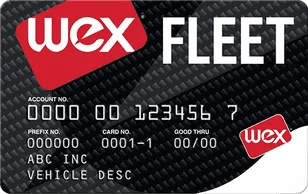We Now Accept WEX Fleet Cards



What is Fleet Maintenance?

Fleet maintenance is the process of keeping your vehicles operating in a good enough condition so that they are safe, reliable and can stay on the road longer. Developing a preventative maintenance program is an integral part of managing a fleet and helps businesses reduce operating costs and improve vehicle inspection outcomes, among other benefits.
Your vehicles are one of your fleet’s top investments. Taking proper care of them is integral to managing a productive business. Without a proactive approach to fleet maintenance, you risk compromising your employees’ safety, failing inspections and paying for costly emergency repairs and unplanned downtime. That’s why the health of your vehicles is a good overall indicator of the health of your business.
HOW CAN FLEET MAINTENANCE HELP EXTEND EQUIPMENT’S LIFESPAN?
Getting the most out of your vehicles means being vigilant about preventative maintenance. It’s been shown that proper maintenance extends equipment’s longevity – for example, keeping tires at the proper pressure and rotating them regularly increases their mileage.
A good place to start is following the service schedule provided by the vehicle’s manufacturer, but keep in mind that depending on your fleet’s needs, you may need to get your vehicles serviced more frequently than what the manufacturer recommends.
HOW CAN REGULAR FLEET MAINTENANCE REDUCE OVERALL REPAIR COSTS?
Not only does routine maintenance help detect any problems before they become serious, over time it saves your business money. How? While you may think getting vehicles serviced constantly would be a drain on your budget, it’s less costly over time than delaying service until a problem arises – you’ll pay less for frequent oil changes than you would replace a whole engine, for example.
Also, when a vehicle experiences a major technical problem, it always means losing money over and above what the repairs cost. If even one of your vehicles must be taken off the road for an extended time for extensive repairs, the resulting unplanned downtime means wasted wages and delayed work, both of which impact the bottom line.
HOW CAN REGULAR FLEET MAINTENANCE REDUCE OPERATING COSTS?
Here’s another reason to keep up with routine maintenance: neglected equipment means higher fuel costs. A poorly-maintained engine can consume up to 50% more fuel, and under-inflated tires may reduce mileage by as much as 10%, also contributing to wasted fuel. Following organized maintenance schedules also means vehicles stay in prime working condition longer, increasing their resale value. In addition, buyers are likely to pay more for a vehicle they know has been well-maintained, so it’s important to keep thorough records of every oil change, tire pressure adjustment, etc. done to your vehicles if you plan to sell them.
WHAT ROLE DO DRIVERS PLAY IN FLEET MAINTENANCE?
As the people who interact with your vehicles most, drivers have a critical role to play in fleet maintenance. It’s important to train them thoroughly on how to conduct daily inspections, so drivers learn to identify warning signs that something may be wrong and detect problems early.
Give us a call today, let us set up a maintenance package for you!
SOME OF OUR FLEET MAINTENANCE CUSTOMERS











